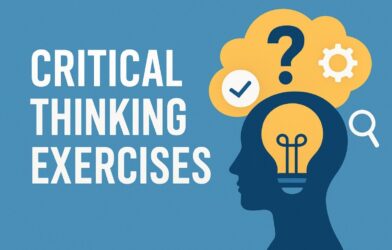Emergency Medical Services (EMS) play a crucial role in responding to addiction-related emergencies. As the frontline responders to overdoses, substance-induced medical crises, and related emergencies, EMS professionals witness firsthand the devastating impact of addiction on individuals and communities.
Understanding the challenges faced by EMS and the addiction treatment strategies they employ can provide valuable insights into improving emergency care and supporting addiction treatment efforts.
Overdose Response
EMS teams are trained to administer naloxone, a medication that can reverse opioid overdoses. Rapid administration of naloxone can be life-saving, reversing the effects of opioids and restoring normal respiration.
In addition to naloxone administration, EMS professionals provide immediate medical care, such as managing airway obstruction, providing oxygen, and monitoring vital signs, to stabilize the patient until they can be transported to a hospital.
Handling Acute Intoxication
EMS teams assess and manage cases of acute intoxication, which can involve alcohol, stimulants, depressants, or a combination of substances. They provide supportive care, such as intravenous fluids, and monitor the patient’s condition.
EMS professionals transport patients to medical facilities for further evaluation and treatment. This ensures that individuals receive comprehensive care for their acute intoxication and any underlying health issues.
Addressing Withdrawal Symptoms
Severe withdrawal symptoms, such as seizures or delirium tremens, can be life-threatening. EMS teams provide emergency care to manage these symptoms and transport patients to appropriate medical facilities for continued treatment.
EMS professionals offer supportive interventions to alleviate withdrawal symptoms and provide comfort to the patient during transport.
Challenges Faced by EMS Professionals
EMS professionals encounter several challenges when responding to addiction-related emergencies:
High-Stress Situations
Repeated exposure to overdose scenes and addiction-related crises can take an emotional toll on EMS professionals. The stress of managing life-threatening situations and witnessing the impact of addiction can lead to burnout and compassion fatigue.
The physical demands of the job, including lifting and transporting patients, can be exhausting. EMS professionals must maintain their physical health to perform their duties effectively.
Safety Concerns
Responding to addiction-related emergencies often involves unpredictable and potentially dangerous environments. EMS teams must navigate these situations while ensuring their own safety and that of the patient.
Patients experiencing acute intoxication or withdrawal may exhibit violent or aggressive behavior. EMS professionals must manage these situations with care and ensure their safety while providing medical care.
Limited Resources
EMS teams often work with limited resources, including personnel, equipment, and medications. Managing multiple addiction-related emergencies simultaneously can strain available resources and impact the quality of care.
Ensuring that patients receive appropriate follow-up care after an emergency response can be challenging. Coordinating with hospitals, addiction treatment centers, and social services is crucial for comprehensive care.
Strategies for Effective EMS Response to Addiction
To address the challenges of addiction-related emergencies, EMS professionals employ several strategies:
Training and Education
EMS professionals receive specialized training in addiction-related emergencies, including overdose response, managing intoxication, and handling withdrawal symptoms. Ongoing education ensures that they are equipped with the latest knowledge and skills.
Training in cultural competency and understanding the unique needs of individuals with substance use disorders enhances the quality of care provided by EMS teams.
Collaboration and Coordination
Collaborating with law enforcement, healthcare providers, and social services can improve the response to addiction-related emergencies. Integrated response systems ensure that patients receive comprehensive care and support.
Establishing clear communication protocols with hospitals and addiction treatment centers ensures that patients are seamlessly transitioned from emergency care to ongoing treatment.
Access to Naloxone
Ensuring that EMS teams have ready access to naloxone is critical for effective overdose response. The widespread availability of naloxone kits and training for EMS professionals enhances their ability to save lives.
Distributing naloxone kits to community members and providing training on their use can empower bystanders to respond to overdoses before EMS arrives.
Mental Health Support for EMS Professionals
Implementing peer support programs for EMS professionals can provide emotional and psychological support. Sharing experiences and coping strategies with colleagues can reduce stress and prevent burnout.
Providing access to counseling and mental health services for EMS professionals is essential for their well-being. Regular mental health check-ins and support can help manage the emotional toll of the job.
EMS professionals play a critical role in responding to addiction-related emergencies, providing life-saving care, and stabilizing patients in crisis.
Read More Articles: Online CPR Certification for Healthcare Professionals: What You Need to Know.














